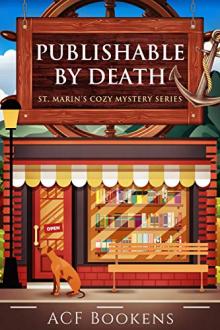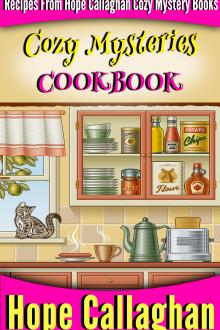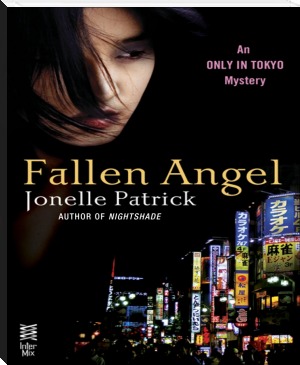Publishable By Death - Andi Cumbo-Floyd (ebook reader wifi .txt) 📗

- Author: Andi Cumbo-Floyd
- Performer: -
Book online «Publishable By Death - Andi Cumbo-Floyd (ebook reader wifi .txt) 📗». Author Andi Cumbo-Floyd
The fact that one door had gotten dirty and the other hadn’t bugged me, though, and I wanted to see if there was a problem with the gutter or something. I got closer, and that’s when I noticed the smell. Oregano? No, sage. I knew that smell from almost every shop in the Haight in San Francisco. It was the scent du jour of the wellness community, but I had never cared for it much since it was so deeply appropriative to take a Native American ritual and use it to make a store smell good.
I got closer and saw a pile of ash on the ground by the door. Someone had been burning sage? Presumably they thought the place had bad energy and had been smudging the doorway, but who? And why? And for how long? Something had been burned here a lot to turn that door a slightly gray hue.
I was almost certain that I was smelling sage, but I couldn’t be sure. I need to get a sample and have it analyzed, I thought and then immediately wondered if that was even a thing investigators did or just a result of my deep affection for TV police procedurals. Better safe than sorry. I dug into my back pocket and pulled out a candy wrapper that I’d shoved there earlier. I was always putting trash in my pockets – a gum wrapper someone had dropped in the store, a bottle top on the sidewalk – and it drove Mart crazy when she did laundry. “Ooh, you don’t know where that’s been, and you put it in your clothing.” I always shrugged. Now, I had good reason for my trash.
I took a quick look around to be sure I was still alone and then set down the hammer. Then, I used the tip of my pinky finger to scoot a little of the ash into the wrapper and twisted it shut before carefully sliding the filled wrapper into my front pocket. I scooped up the hammer and made my way over to the back door. I slammed it shut, dropped the safety bar into place, and stood stock-still, listening to be sure no one was on the other side of the door. I didn’t hear anything, so I let out a long sigh and headed toward the front of the store.
Mayhem, however, didn’t follow. She stood staring at the back door until a knock at the window signaled Daniel and Taco’s arrival. Only then, did she join me by the alarm box and then lead me out the front door. I appreciated her vigilance, but I hoped it was just over-caution and not a response to someone outside.
As we headed down Main Street, I told Daniel about the back door and the ash I’d found. I wanted to be annoyed that he was more concerned about me being behind the shop alone than he was curious about the ash, but I couldn’t be. It just made me want to smile to see his concern, but I figured grinning away as he expressed that feeling probably wasn’t the best idea.
We decided we should probably let the sheriff know about the door right away, just in case, so after I texted Mart to let her know we’d be a bit late AND answered her call when she confirmed I wasn’t texting under duress AND let her hear Daniel’s voice to triple check, we walked over to Mason’s office. I didn’t know if he’d be there, but I figured I could leave a note and the wrapper – preferably transferred to something a little more secure – with the officer on duty.
But we didn’t even need the note. The sheriff was the officer on duty for the night, a fact that made me like him more. I always respected a person who did all the things they required the people who worked for them to do.
After I explained about the door and endured a less pleasant lecture not only about the risk I had taken to gather the evidence but also about how there were trained police officers in town that had phones, Mason took the wrapper, poured the contents into an evidence bag, and then said, “This makes things more interesting.”
“It does?” I sat forward on the edge of the hard, plastic chair next to his desk. “Why?”
“Slow down, Cowgirl,” Mason said. “Did you not hear me about trained investigators?”
I sat back and rested my hands on my knees. “I did, but can I help it if I’m a naturally curious person?”
Daniel and the sheriff exchanged a look that said, “So that’s what she calls it,” before the sheriff turned to me. “I expect if I don’t tell you, you’ll be back at the library looking through microfilm again. Oh, you thought I didn’t know about that, huh?”
I cleared my throat. “I guess there are no secrets in this town.”
“Not when the new woman is poking her nose into a murder investigation. Nope, no secrets then.” He gave me a stern look down his nose. “Anyway, we found a similar pile of ash over at the courthouse.”
“In the courthouse?” Daniel asked.
“Well, not in there, but by the old “colored” bathrooms outside.” The corners of his mouth turned down hard when he said colored.
“Oh man. I grew up in the South, but I’ll never get used to the fact that black people had to use separate facilities.” I looked at the sheriff. “I’m so sorry. Is that hard for you to think about?” I felt naïve asking that question, but to talk about segregation with a black man and not at least acknowledge that this history was his parents’ reality felt ridiculous, not to mention racist.
“It used to be. Still is if I think about it too much. But it was the way it was, so I just work with that.” He looked at me then. “Thanks for asking.”
“No problem. But this was found at the colored restrooms? The men’s room?”
“Yep, same as at your place.”
I tilted my head. “Really? Were the bathrooms at the gas station for black people?”
He sat back then. “Oh, you didn’t know? Oh yeah, that station was owned by a black family, the Hudsons. It was even in The Green Book.”
I knew The Green Book – that little booklet that told African American people where they could safely sleep, eat, and shop as they traveled through the segregated South. They’d made that movie with Mahershala Ali and Viggo Mortenson and used the book’s name as the title. A lot of people loved that film; It even won the Oscar, but when I’d seen it at a theater in Oakland, the conversation in the lobby afterward wasn’t so flattering. One woman said, “Just what we needed, another movie about white people saving us.” I’d liked the movie, but what that woman said stuck with me.
But it wasn’t the film that Mason was talking about – it was the actual book, and I was surprised. “It was? Wow.” I sat quietly for a moment, pondering the history of my little shop’s building.
Mason furrowed his brow. “Does that bother you?”
“What?! Oh, no. I love that actually. I like that it was a safe space for people. I’m just thinking about what it must have been like to need to consult a book to be able to know you were safe. I mean, I get the idea of safe spaces because as a woman I think about that stuff. I don’t go into a parking garage alone at night, for example—“
“But you will go into a dark parking lot where two murders have happened alone.” Daniel’s tone was playful, but he had a point.
I gave him a gentle smile. “You’re right. But I guess I’m saying I understand the experience of feeling unsafe sometimes, but never to that level. Never so much that I had to know which towns I could drive in at night and which were Sundown Towns, where I’d be in danger if I was there after dark.” In one of the local history books I’d read when I first moved to St. Marin’s, I’d read about an island a bit further down the shore, where black people couldn’t visit after dark for fear of their lives. The book had called it a Sundown Town, and I’d learned about another facet of racism I’d never been taught.
“Well, I’m glad you like knowing that history, Harvey, but it does beg the question, why be burning sage at the door to two bathrooms that historically only black men used?”
I nodded. That was a good question, and I was eager to try and find out.
We left the sheriff’s office and had to wake up Mayhem and Taco where they snoozed by the bike rack out front. As we walked home, I ran through my thoughts out loud. I had always been a verbal processor, and so things really only became clear to me when I talked through them. It was a habit both of my parents, who believed firmly that personal problems needed to remain so private that they weren’t even shared with family, despised. Mom would pick me up after school and ask how my day was, but when I began to tell her about the girl on the playground who had told me to “mind my own beeswax” when I’d asked what she was doing or





Comments (0)